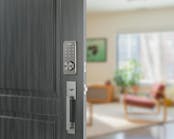Earlier this year, two models of hotel locks were found to be vulnerable to surreptitious entry. Some of these lock models could be opened using a custom built electronic bypass tool. Building the bypass tool requires expertise in electronics as well as programming and obtaining parts.
The bottom line is the losers are the hotel guests and the hotels that own these locks. The hotel guests lose because most will not be able to identify the brand of lock when they use the card to gain access into their rooms. Those who ask and those who do not ask will have concern for their safety.
The hotels are the biggest losers. There are estimates of more than 22,000 hotels worldwide having between four to ten million vulnerable locks. Many are small, niche hotels that need to have near full room counts to survive.
The hotels lose even if the final solution was provided at no cost. Removing each lock from each guest room, shipping the lock, waiting for the turnaround and having the upgraded lock installed will be a significant expense. During the upgrade, the hotel room doors cannot be left without locks and there is no such thing as free temporary replacement locks.
Depending upon what part of the world the hotel is located; the Authority Having Jurisdiction may or may not allow a lock alternative if there even is one. The best possible scenario is if there is no replacement and the authority allows the guest room doors to be inexpensively secured and not rented. Eventually every room in every one of the 22,000 plus hotels will be vacant for give or take a week to two or more depending upon their distance from the lock manufacturer and the number of locks being serviced at the time.
I wonder how many man-hours are required to upgrade millions of locks. It certainly will slow down service and return times.
The choice for many of the affected hotels is to ride out the storm and not make the “you ship and pay for the locks” upgrades. Hoping that the odds are in their favor and there will not be a major loss of life or property until they can afford to purchase replacement locks.





